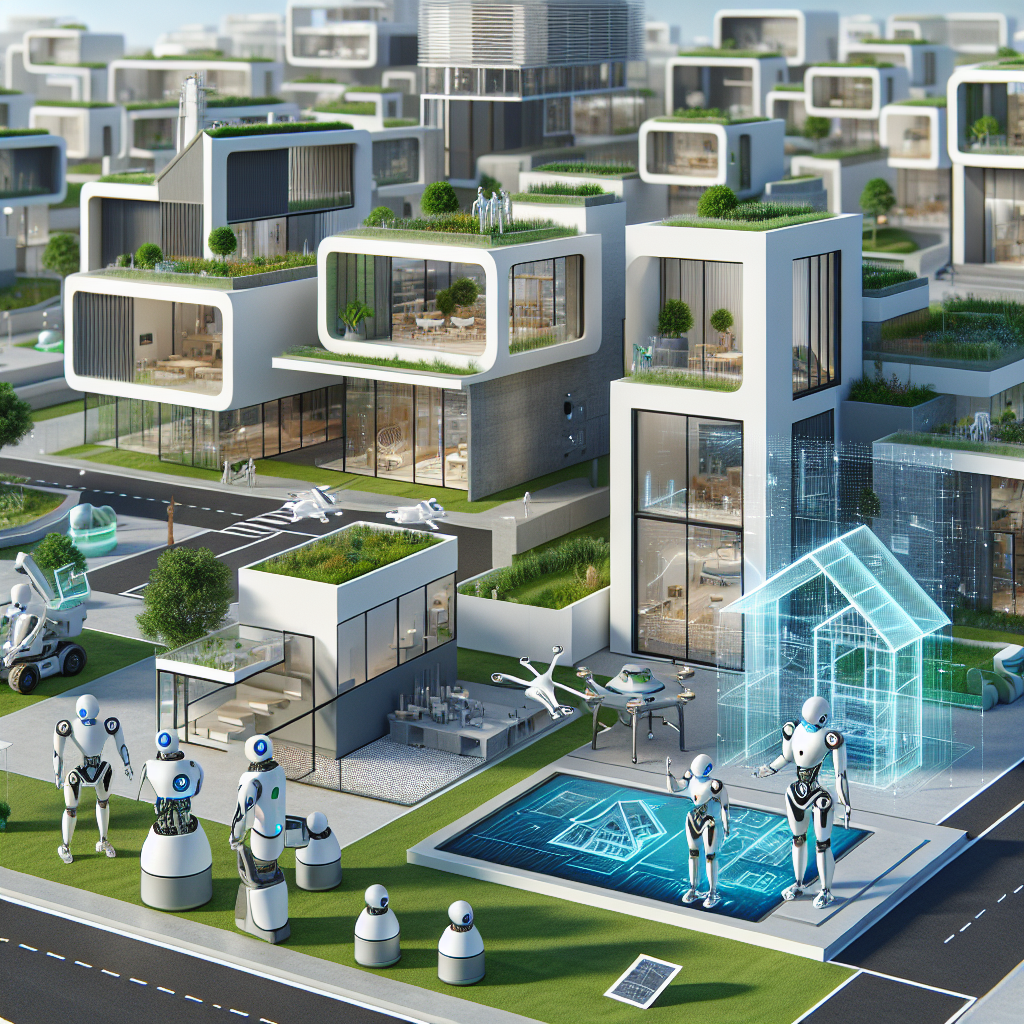Artificial Intelligence (AI) has been rapidly advancing in various industries in recent years, and the field of residential architecture is no exception. AI technology is revolutionizing the way architects design and build homes, offering new tools and capabilities that were previously unimaginable. From automated design processes to smart home integration, the future of AI in residential architecture is bound to transform the way we live.
Automated Design Processes
One of the most significant ways AI is impacting residential architecture is through automated design processes. AI algorithms can analyze vast amounts of data and generate design options based on parameters such as site constraints, building codes, and client preferences. This allows architects to explore a wider range of design possibilities in a shorter amount of time, enabling them to create more innovative and efficient solutions.
AI-powered design tools also have the potential to optimize building performance and sustainability. By analyzing environmental data and simulating building performance, AI algorithms can help architects make informed decisions about materials, orientation, and energy use, leading to more environmentally friendly and energy-efficient designs.
Virtual Reality and Augmented Reality
AI is also making waves in the field of virtual reality (VR) and augmented reality (AR) in residential architecture. VR and AR technologies allow architects to create immersive experiences for clients, enabling them to visualize their future homes in a realistic and interactive way.
AI algorithms can enhance VR and AR experiences by generating realistic 3D models and simulations of proposed designs. This not only helps clients better understand the spatial layout and design details of their homes but also allows architects to receive valuable feedback and make adjustments in real-time.
Smart Home Integration
Another exciting development in the future of AI in residential architecture is smart home integration. AI-powered systems can be integrated into homes to automate various functions such as lighting, heating, security, and entertainment. These systems can learn and adapt to the habits and preferences of homeowners, providing a personalized and seamless experience.
AI algorithms can also analyze data from sensors and devices within the home to optimize energy usage and improve overall comfort and convenience. For example, smart thermostats can adjust heating and cooling settings based on occupancy and weather conditions, while smart lighting systems can adjust brightness and color temperature to create the desired ambiance.
Frequently Asked Questions
Q: How will AI impact the role of architects in residential architecture?
A: AI is expected to augment rather than replace the role of architects in residential architecture. AI-powered tools can assist architects in generating design options, analyzing building performance, and optimizing efficiency, allowing them to focus on creative and strategic aspects of the design process.
Q: Will AI replace traditional design methods in residential architecture?
A: While AI is transforming the way architects design and build homes, traditional design methods are unlikely to be completely replaced. AI-powered tools can streamline and enhance the design process, but human creativity and expertise will always play a crucial role in residential architecture.
Q: How can homeowners benefit from AI in residential architecture?
A: Homeowners can benefit from AI in residential architecture in various ways, such as improved design options, energy efficiency, and smart home integration. AI-powered systems can enhance the overall comfort, convenience, and sustainability of homes, providing a more personalized and enjoyable living experience.
Q: What are the challenges of implementing AI in residential architecture?
A: One of the main challenges of implementing AI in residential architecture is the need for specialized skills and expertise. Architects and designers may require training to effectively use AI-powered tools and technologies in their practice. Additionally, concerns about data privacy and security may arise when implementing AI-powered systems in homes.
In conclusion, the future of AI in residential architecture holds great promise for transforming the way we design and build homes. From automated design processes to smart home integration, AI technology is revolutionizing the residential architecture industry, offering new possibilities for innovation, efficiency, and sustainability. As AI continues to advance, it will be exciting to see how architects and homeowners alike embrace these new opportunities to create homes that are smarter, more efficient, and more comfortable than ever before.

